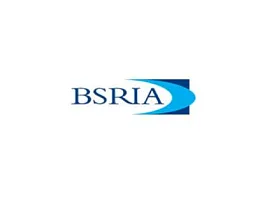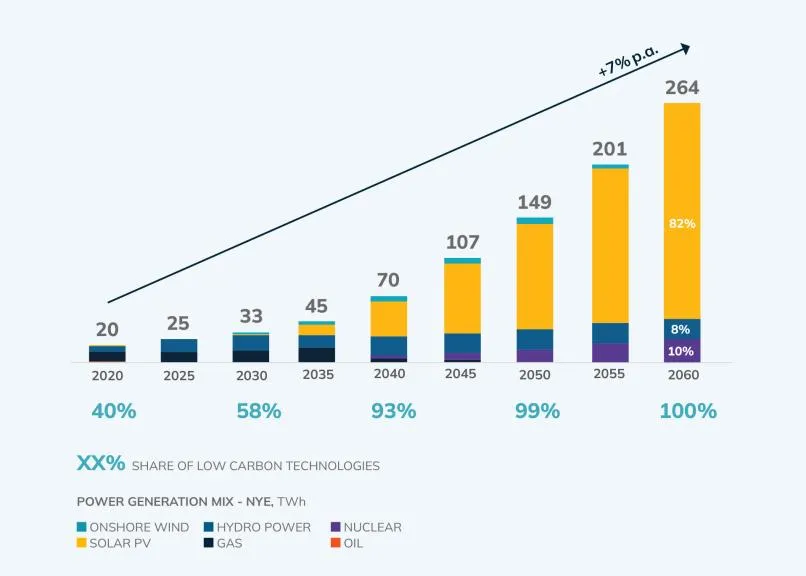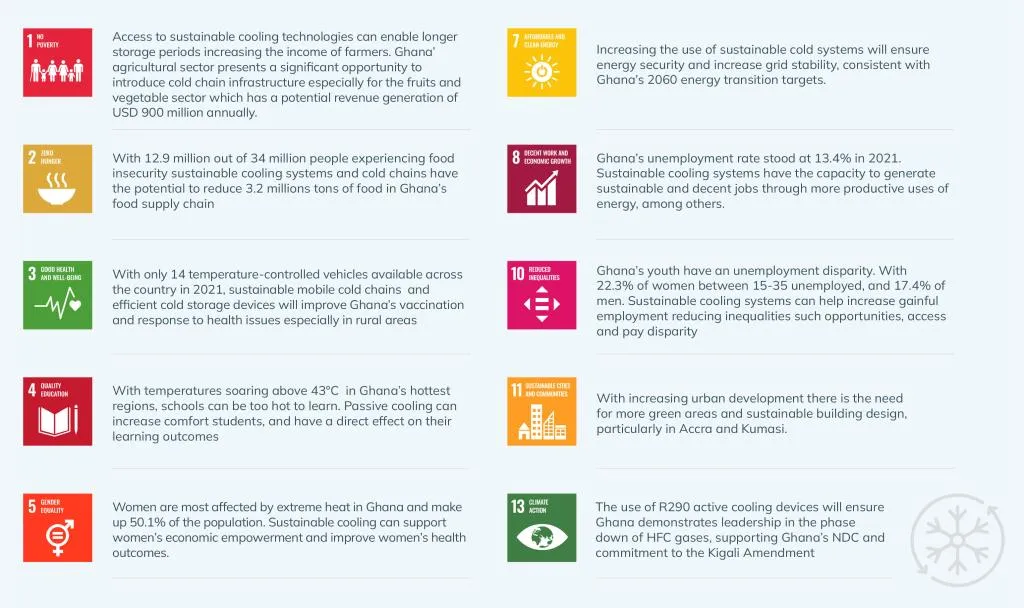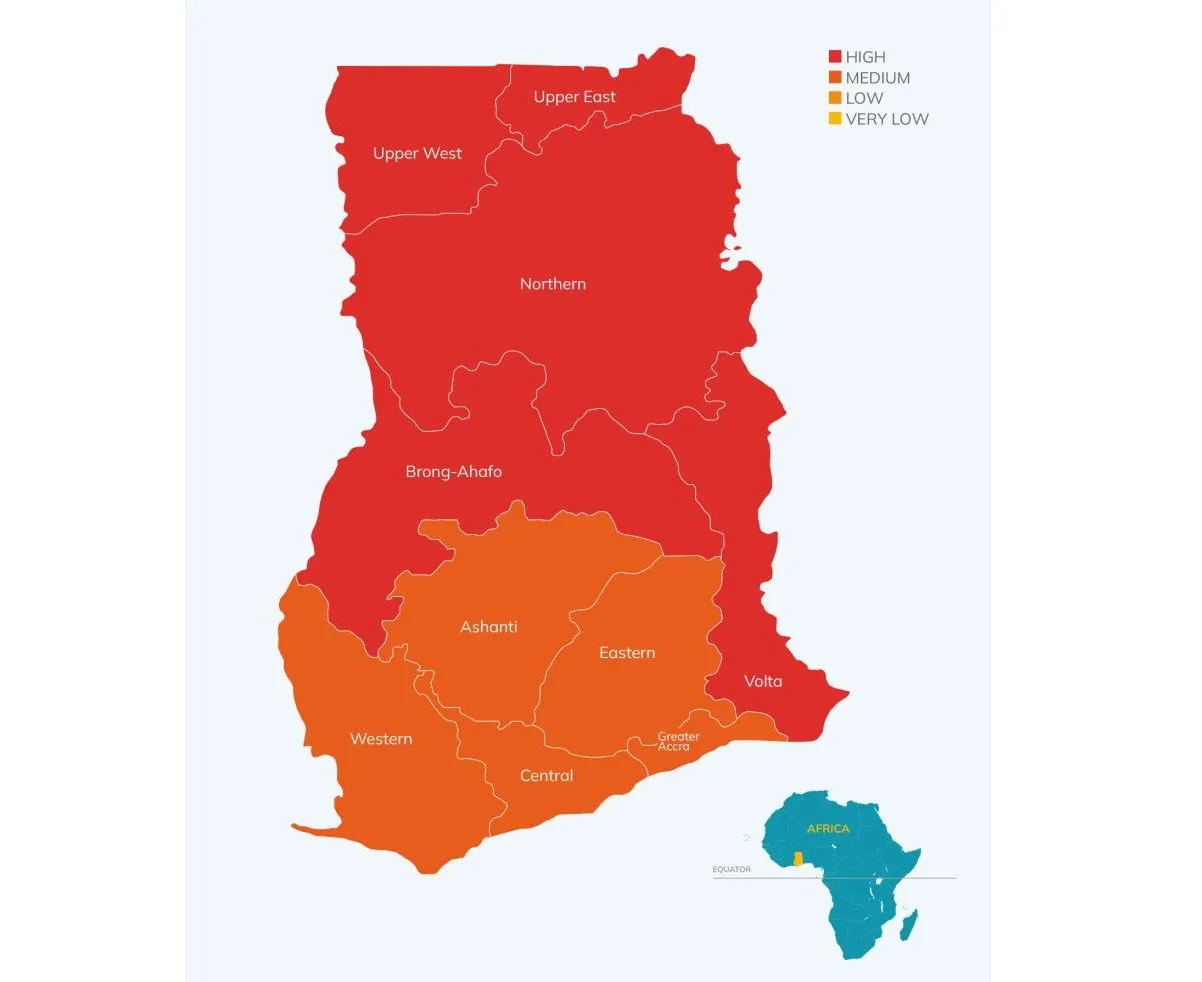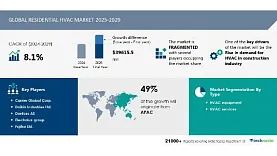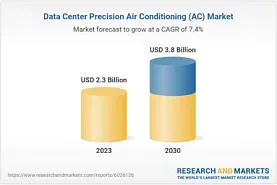
Ghana Faces Urgent Need for Sustainable Cooling Solutions


According to SEforALL’s Chilling Prospects analysis, 12.9 million Ghanaians - both rural and urban poor - are at high risk due to inadequate cooling access. These individuals either lack electricity or live in substandard housing with minimal thermal insulation. An additional 16.6 million people face medium risk, with limited financial resources to afford cooling solutions despite having electricity access.
The ongoing power supply disruptions in 2024, commonly referred to as “dumsor,” have further exacerbated the situation, making it difficult for fans, air conditioners, and refrigerators to function consistently.
Rising Demand and Climate Challenges
As Ghana’s economy grows, so does the demand for RAC solutions. The Ghana National Cooling Plan (NCP) projects a rise in energy consumption for the RAC sector from 7.04 TWh in 2015 to 20.9 TWh by 2050 under a business-as-usual scenario, with corresponding greenhouse gas emissions increasing from 5.05 Mt CO₂eq to 12.8 Mt CO₂eq. Without intervention, this trend could hinder Ghana’s climate commitments under the Paris Agreement and the Kigali Amendment.
Climate projections indicate that Ghana’s mean annual temperature, currently 27.3°C, could rise by 1.0°C to 3.0°C by mid-century and by 2.3°C to 5.3°C by the end of the century. Northern Ghana, where temperatures are expected to rise the most, already experiences extreme heat conditions, increasing the urgency for climate adaptation strategies.
Energy Transition and Cooling Access
Despite Ghana’s high electricity access rate - 95% in urban areas and 72% in rural areas - power interruptions continue to pose challenges. Ghana’s Energy Transition and Investment Plan (ETIP) outlines a shift toward renewable energy, targeting net-zero emissions by 2060. By 2050, solar power is expected to provide 71.4% of the country's electricity, supplemented by nuclear (10.24%), hydro (13.87%), and wind (3.86%). However, without improvements in energy reliability, millions will remain vulnerable to extreme heat.
Policy and Market Interventions
The SEforALL report emphasizes the need for policy and market interventions to advance sustainable cooling. Recommendations include:
- Expanding Energy-Efficient Cooling: Incentivizing the adoption of high-efficiency air conditioners and refrigerators through policy frameworks and financial support.
- Strengthening Cold Chains: Enhancing refrigeration infrastructure for food security and healthcare, particularly for vaccines and perishable goods.
- Improving Building Standards: Promoting passive cooling techniques, better insulation, and energy-efficient building designs.
- Scaling Up Renewable Energy: Accelerating the deployment of solar and other renewable energy sources to support reliable cooling solutions.
With Ghana’s commitment to sustainable cooling through the Global Cooling Pledge, the report underscores the opportunity to align cooling strategies with the country’s economic, energy, and climate goals. Addressing these challenges will be essential for ensuring equitable access to cooling while supporting Ghana’s long-term development.
For more details, the full report is available from SEforALL.
Related News





